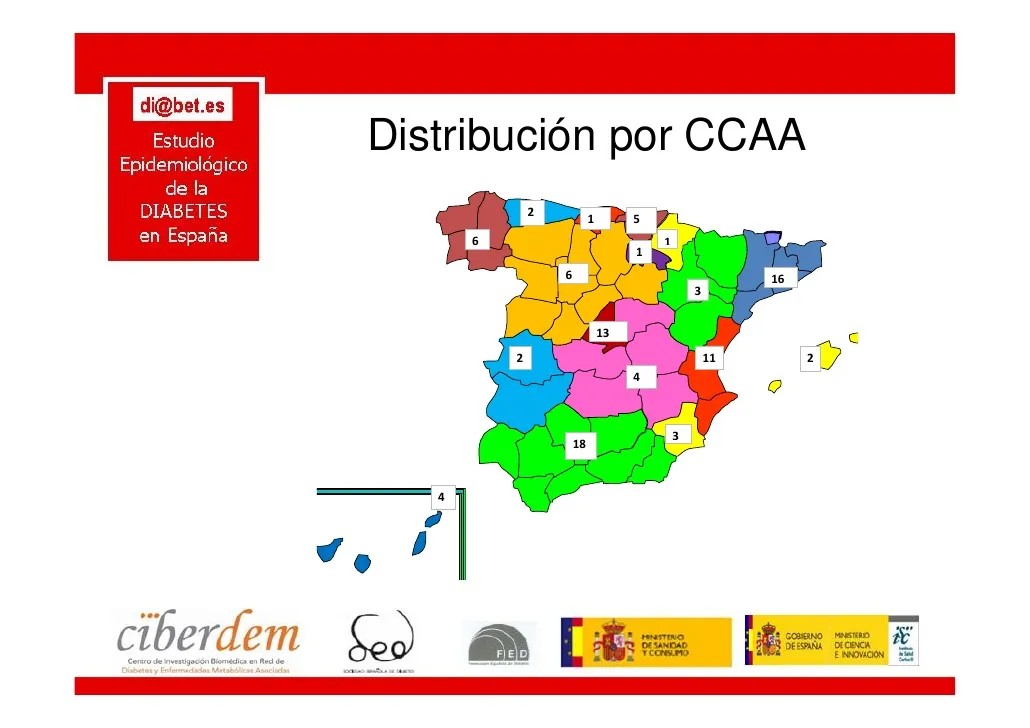The associated metabolic diabetes and metabolic diseases (CIBERDEM) has presented within the framework of the XXIX National Congress of the Spanish Diabetes Society, the results of the study di@bet.es, which includes the incidence of type 2 diabetes mellitus type 2 in Spain,encryons in 11.58 cases for 1,000 people-year.Based on this incidence, in a year 386,003 people develop metabolic disease throughout the country.
This study of prospective cohorts, which has been announced during the National Congress held from yesterday, day 18, until this Friday in Oviedo, is the first designed with the aim of determining in the adult population the prevalence and incidence of theType 2 diabetes throughout Spain.The study had a first phase that was carried out between 2008 and 2010 in a sample of 5,072 adults of the Spanish population, over 18, randomly selected from the National Health System, from 110 Primary Care Centers.
In 2012, the results were published, which established a diabetes prevalence of 13.8%, which implied that about 4 million Spaniards suffered from type 2 diabetes, and throughout 2016-2017 the same population cohort has re-evaluated, having studied 2,048 people who did not present diabetes in the initial study.
Higher in men than in women
Field work has been organized in 6 geographical areas: North 1: Asturias and Galicia;North 2: Basque Country, Navarra and Cantabria;Northeast: Catalonia and Aragon;Center: Madrid, Extremadura, Castilla La Mancha and Castilla-León;Levante: Valencia and the Balearic Islands;South: Andalusia and the Canary Islands.The results that are presented today establish that 11.58 people per 1,000 people-year are develop diabetes.Based on the current census of the Spanish population, this implies that every year 386,003 new cases of diabetes appear in the population over 18 years, the incidence of diabetes is higher in men than in women.In men it increases with age since the age of 18, with a maximum in the 75, while in women the incidence grows continuously with age.
associated risk factors can be determined
Subsequent analysis of the evaluated variables will allow to determine the risk factors associated with the development of diabetes, as well as the incidence of associated co-morbilities.In the study, anthropometric variables, such as weight, body mass index, waist and hip circumference, waist/ hip-hip-variable index, healthy habits such as physical activity such as physical activity such as smoking or intake ofAlcohol, use of drugs, eating habits and also the presence of pathologies associated with diabetes such as hypertension, dyslipemia, as well as multiple biochemical variables.
In addition, a periodontal health study has been included, at the representative sample level of the Spanish population, whose results are currently in the evaluation phase.


